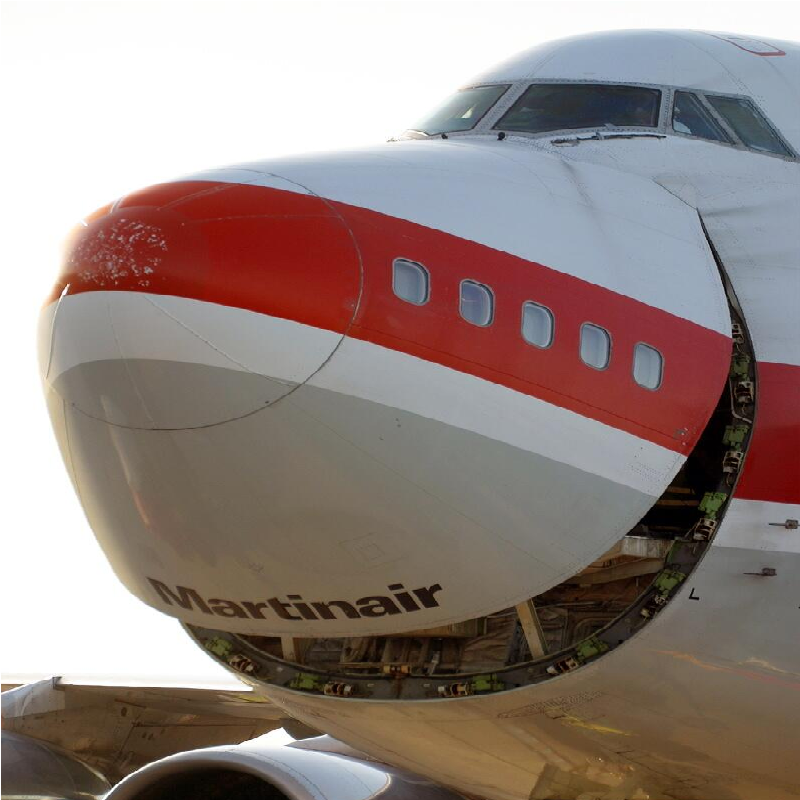Well the solution here is to just use the superior distro, naturally.
This post will surely upset nobody.
the superior distro
Finally, puppy linux is getting the recognition it deserves
I ordered something from someone awhile back and it came with a free flash drive in the shape of a credit card. It had pictures of puppies on it so naturally it’s a puppy linux drive now.
This is entirely irrelevant but hopefully someone gets a smile out of it.
flash drive shaped like a credit card
Wait, what?
Thin, credit-card-sized USB drives are a popular promotional gimmick because they have a practical use but also have a large surface area for promoting your brand. Most often given out as vendor gifts.

Weird, but interesting!
If you donate to the FSF, you get a member card with pre-installed Linux.
and GNU?
I think you mean Hannah Montana Linux.
Puppy ftw
Puppy’s awesome. I’ve used it on a laptop so old I had to install a bootloader in the MBR so it would boot from USB. It ran like a dream.
Red Hat 5.0 for lyfe.
Kernel 2.0.36 represent! ✊
When did TempleOS start supporting .deb files?
Agreed. Debian Linux is just a children distro with a fibonacci logo that god created.
You’re right! If a deb file exists then surely it’s in the AUR. ABS will repackage it seamlessly for you and then install it directly with Pacman.
Btw I use Arch
TRIGGERED
Linux mint ftw
BRB. Sharpening my teeth.
is there a way to make it work like a rolling release of sorts? i’d want to use debian, but i don’t want to stay with old packages and wait 2 years for an update
You could use debian testing. It’s a somewhat “rolling-release” model. You will get more up to date packages with more stability too.
You could also use unstable, but I wouldn’t recommend it personally.
Edit: if you really need the most up to date version of some packages, you can pin them to use the unstable repo. This would be a pretty reasonable solution.
You could just go with Debian unstable. I rarely ran into issues while running it in a rolling release style.
Debian testing might also work for you. But it will have a freeze window before each release.
As will have debian unstable. That’s the way it goes, for a few months every few years it slows down until the new stable gets released. Testing is just 10 days after unstable to avoid the biggest bugs.
Never had big problems with debian unstable in 15 years though, as long as you use apt-listbugs
sparky Linux is based on Debian and it has stable and rolling release
Most of such packages, be it deb rpm or really whatever, have their AUR entry, install and run fine on Arch.
Savage. 💣
I don’t care I use Arch BTW. Someone would have made a AUR package for it by now.
Most of the air is converted deb
Can you breathe converted deb?
Let me try and get bac…
So nice of you to hit send before passing out. You’re a true hero.
hopefully he didn’t bat
I would have never guessed an Arch linux user would go by reddit_sux
My other fediverse account is reddit_sux@iusearchlinux.fyi just to hammer the point even more.
As someone who’s used debian based distros for 20+ years now, I see no issue with this. ;)
I use Debian btw
Testing or bust.
Bookworm
Sid on home PC, Bookworm on work laptop
As an Ubuntu user of 17+ years, I concur.
Only problem is remembering to keep it updated.
Even worse: the .deb file’s dependences are only available in a specific version of Ubuntu LTS or with PPAs.
That’s where the AUR comes in. Some neckbeard somewhere has already made an AUR package of that.
Then we should appreciate them. Is it fair to call them neckbeards when they toil away at the code coalface for our benefit?
Well … do they have a neckbeard? /s
This is literally me calling a marine “Jarhead” or “grunt”. Sorry, military habits never die. I’m showing them love by calling them that, at least that’s what my intentions are.
Fucking gyrenes, where’d all my crayons go?!
Purple ones where delish 😍😋
Shit half the time it’s right in the main repo under Extra.
This is why Arch is the best. Forget the rolling release, it’s the sheer size of the repos for me.
I’ve daily drivered arch for a couple months now. Only a few time have I not searched and found a wiki/forum with the precise error/comment and a solution/fix for the problem.
It’s almost literally insane.
How would you compare it to Ubuntu? I have never tried Arch before.
Well for a start it’s compulsory to tell everyone you use it.
I have run all kinds of distros. Loved them all, btw. But nothing comes even close to arch and its derivatives. I’ve been running emdeavourOS for almost 1.5 years now and it’s been fantastic. The AUR is godsend. I have never bothered with flatpaks, snaps or appimages. AUR has everything I need.
I’m going from Ubuntu 16 or so (took a break since then). The flexibility/customization/wikis of arch make it better IMO
If you’re moderately comfortable with the command line, Arch is amazing. I find it considerably easier to find software I want to install, and find answers to problems I have.
I would say that if you’re not interested in
learningwhen something goes wrong, so you’re not really interested in anything other thani don't care I just want it to workthen it’s not the distro for you.The rolling release style is really great and Arch is rock solid, so if you are looking for something a little more user friendly, Endeavor is worth a try as it is Arch based but focused on an easier to use system.
I installed Arch for the first time in March of last year for my primary gaming PC. Previously my gaming PCs were windows but I keep a separate file server and HTPC each running Ubuntu. I’m in the process of switching both of them over to Arch now because I just consider package management and updates so much easier.
The rolling release style is really great and Arch is rock solid
Truly don’t mean to be argumentative, but, I read all the time how an update will semi-brick it, requiring repair. ?
Happens every once in a while but usually it’s a trivial repair
There’s the primary maintained software repository, then there’s the AUR. I think most of the times people’s systems break because as inexperienced users they find a specific piece of software a site told them to install and its only available in the AUR, instead of finding something properly maintained that already exists to do the same thing. Over time you end up with a mess of a system relying on user maintained build files.
I learned a lot in my first year of Arch (probably my 15th+ year of Linux though and I was not afraid of the command line) so I decided to reinstall my system after that first year and one of the choices I made was to not use AUR packages (except in very specific cases). I also changed bootloader’s and a few other things.
I’ve had mine break twice I think. The first time was because I didn’t know the general rule was “if you’re doing an update, update everything”. I saw an updated GPU driver was released so I installed it, but didn’t bother with anything else. Turns out you’re supposed to update the graphics drivers and kernel at the same time, so i wasn’t getting output after booting the kernel. The beauty of Arch though is that when you learn to install it, you also learn how to fix it. Booted off the USB installer stick, mounted my root partition, chrooted to it, then ran a system update. I was back booted up, logged in, and gaming in less than 10 minutes from discovering the problem.
In general, I would say people’s systems getting bricked “all the time” is a bit hyperbolic.
Or the OpenSUSE OBS instance for OpenSUSE, it has repositories with packages for almost anything.
It’s kind of hard to find but you can browse everything at http://software.opensuse.org
Nothing Distrobox can’t fix. I can run AUR, RPM, and even those deb files that only run on Ubuntu for some damn reason on my Debiain system.
It’s probably already in your default repos too.
even those deb files that only run on Ubuntu for some damn reason on my Debiain system.
FUCK i understand now! the software i wanted to install had a .deb but its website said it was for ubuntu 20.04, no wonder it didn’t work on a debian container!
i’ll try this RIGHT NOW, hope it works!
it didn’t work, but i soon found out by looking at it’s entry on the AUR that the package is itself broken, not the distro environment it’s supposed to be installed on
It’s seriously frustrating. I had this happen just last night, but fortunately I was able to get the app I needed another way.
This shit is crazy thanks for letting me know
How does distro box do with more complicated gui based applications?
Yup. Should work fine. I know some people use this to get Divinci Resolve to work on Ubuntu.
The only thing I’ve had problems with is a VPN
What about Cisco packet tracer?
It’s worth a shot!
Give it 2 days and chances are someone has already published a PKGBUILD in the AUR
aur?
Arch User Repository. If you’re using Arch, you get the basic stuff from the official repositories. But for most programs there’s the AUR. They’re often less polished, some of it may be proprietary. There are package managers dedicated for it, that also know to handle the official repositories.
Hey, I see you tried to make this link: Read more, but you did it wrong. The exclamation mark (
!) in front of a link is used for embedding media.
Tip: You can embed image into link to create a buttonBtw are you a bot or not
I am not a bot. (I believe)
deleted by creator
Ain’t my fault you forgot about
dpkg -i;-)I remember alien back in the day.
Edit: holy shit this is still maintained https://wiki.debian.org/Alien
holy shit this is still maintained
The struggles of a Linux user
holy shit i had no idea lol
This is why you use glorious Debian.
Just switched a couple of my systems from Pop and Fedora (gnome) to Debian 12 w/ KDE Plasma.
All in l I like it. I don’t like where Canonical or RedHat are moving, for the FOSS consumer. Canonical is making huge strides as an enterprise distro but for home use I’ve really moved away from it since Unity.
Originally I went Fedora because my office was a RHEL shop but we’re moving towards Ubuntu.
I’m a light Linux user with windows 11 on my work dev machine.
I started using Linux Mint and it’s the right speed for me. Switched to Mint LMDE 6. It’s smooth.
(☝◞‸◟)☞
Thankfully RHEL/Centos/Fedora also get attention thanks to the large corporate influence.
Anything else can just be compiled from scratch, after spending 6 hours trying to figure out what ajfiwn-0-libs-dev is in redhat land, only to find out it was libfiwn-devel all along.
pkgs.org with
pkgconifg(package-name)as the search string: let me introduce myselfNobody needs a website, literally just
dnf install "pkgconfig(libfoo-1)"ordnf install /usr/include/fooheader.h. Most sane package manager ever.That’s a thing?? Amazing, I just found out about this not long ago, now seeing that being integrated in the package manager too is next level!
It’s actually just metadata in the rpms, nothing special. OpenSUSE adds even more like “typelib(Gtk-3.0)”.
stick it into a distrobox container and then package that into a flatpak on the AUR. 😎👍
I know all the words that aren’t nouns in that sentence!
distrobox: Tool for creating one-off containers of a different Linux distro.
container: A virtual OS environment that runs on your computer, but doesn’t know that it’s running in your computer. It’s not the same as a VM or emulator.
flatpak: A tool designed by RedHat for running sandboxed Linux programs in any environment. Flatpak can either refer to the system as a whole (eg: “You need to install flatpak on your machine to use our tools”) or an individual program packaged for the flatpak system (eg: “You must download the latest flatpak of Firefox”).
AUR: The Arch User Repository. A collection of installation scripts to add software to Arch Linux. These scripts are not owned or maintained by anyone officially affiliated with Arch, so you can find AUR packages for almost anything.
So, the comment becomes: Stick it in a dedicated environment designed to run Debian. Then package it so anyone can run it. Then make it easy for anyone running Arch Linux to install it.
flatpak… is unrelated to redhat, at least at the moment
it was initially made as a side project by a person who worked at red hat on containers, nowadays it’s developed by freedesktop.org
Only n00bs install packages. Cool people compile from source.
That’s still just mid level. Cool people codes everything from scratch by just looking at some pictures
Only n00bs code their programs from scratch. Cool people build their own kernel, OS, compiler, and coding language, and they already have that program built in.
I did, but I also made my own internet and it gets lonely there.
Like that schizo guy who did TempleOS. The ultimate computer man.
Only n00bs build their own kernel, OS, compiler, and coding language, and they already have that program built in. Cool people create their own universe, with different laws of physics and constants, then they make it act as a whole computing entity capable of anything, it then creates a simulation in which we discuss this stuff.
Laughs in soldering logic gates out of vacuum tubes.
You amateurs and your software, real programmers work in lead and tin.
That’s nothing, only n00bs do that. Cool people code in binary; the real programming language.
Removed by mod
TempleOS has entered the chat.
Only available as Deb file.
He forgot to compile reading comprehension from source.
He is so cool that he is reverse engineering the source and compiling from there.
HE’S TRYING TO INSTALL PROPRIETARY SOFTWARE!!! GET THE TORCHES AND PITCHFORKS!!!
I don’t know what the Linux community’s consensus on appimages are, but I wouldn’t mind if people made more appimages because, for the few distros I’ve used, appimages just usually work.
AppImages are definitely convient to use. However the two issues I have with them are that there’s no easy way to find them (eg flathub) and they’re not automatically integrated with the DE. Requiring a tool that manages AppImages to make it easier.
Appimages are supposed to be distributed the same way Windows and Mac software is distributed, that’s kind of the point.
As for management, I agree distros should ship with an appimage manager.
https://sourceforge.net/projects/alien-pkg-convert/
It’s only been around like forever.
I was gonna say “has no one in here heard of alien?”. I’ve rarely ever had to use it… because I use Arch.
alien never worked for me, i tried once but it led to an unistallable package
alien never worked for me
I tried it once
Lol
He is technically correct, the best kind of correct.
Debtap is suprisingly easy to use after switching to arch (highly recommend), but i actually love .deb files. Obviously it’s a slight risk to the user in the similar way dot EXE’s can be for windows , but they really do simplify package management for when you’re newer to linux.





























